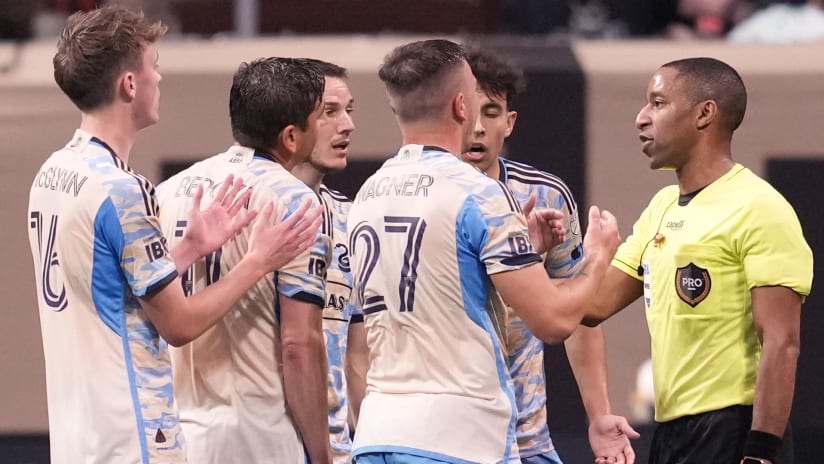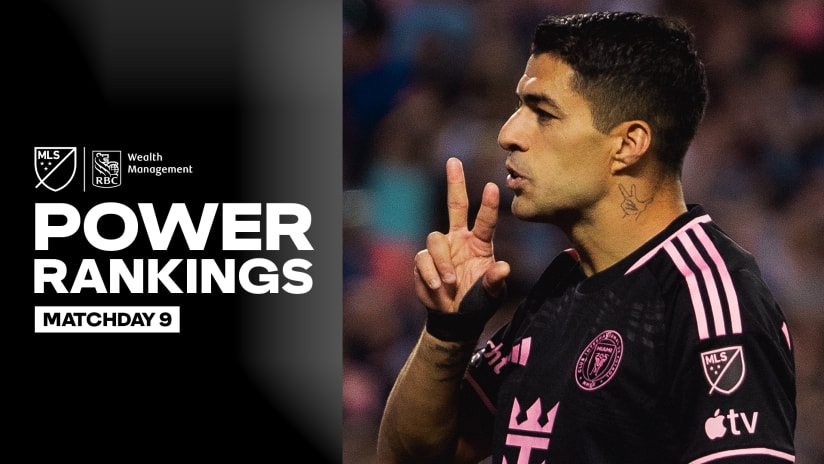awarded to the team with the best regular-season record -- by totaling 64 points. It was only the second time in MLS history that a team has earned 60 or more points, and along the way, the Quakes established a new record for fewest losses in a season with just four.
All this from a team that some expected to struggle to make the playoffs.
Last offseason, the Quakes were a team in flux. League poster boy Landon Donovan departed for German club Bayer Leverkusen in January, only to return to MLS -- this time with the Los Angeles Galaxy -- three months later. Veteran defender Jeff Agoos was traded to the MetroStars, and the team's midfield tandem of Richard Mulrooney and Ronnie Ekelund left the club as well, with Mulrooney heading to FC Dallas and Ekelund heading into retirement.
As the MLS SuperDraft approached, Kinnear set about restocking his lineup. Two days before the draft, the Quakes acquired forward Alejandro Moreno and defender Chris Aloisi from the Galaxy, sending defender Todd Dunivant and goalkeeper Steve Cronin the other way. On draft day, Mulrooney was traded to Dallas, along with winger Arturo Alvarez, in exchange for midfielder Brad Davis, and the club sent a draft pick to the MetroStars in exchange for holding midfielder Ricardo Clark.
Kinnear wasn't done yet. Forward Ronald Cerritos -- the club's all-time leading goalscorer, officially rejoined the club in the days following the draft, and a month later, defender Wade Barrett returned to the club after two seasons in Europe. In March, Kinnear snagged defender Danny Califf from the Galaxy in exchange for an allocation.
Then, after the start of the regular season, starting defenders Troy Dayak and Craig Waibel went down with season-ending injuries. Kinnear pulled the strings yet again, acquiring defender Kelly Gray from the Chicago Fire in May and midfielder Mark Chung from the Colorado Rapids in June.
With such upheaval -- 13 players who saw the field this season weren't on the club's roster a year ago -- the Quakes could have been forgiven if they didn't immediately jell. But to most observers' surprise, they came together quickly, settling down after an uneasy April in which they went 1-1-3 and allowed 11 goals.
In the months that followed, the Quakes became a juggernaut, steamrolling their opponents with each of Kinnear's acquisitions playing a key role. Moreno finished second on the team in goals with eight; Cerritos finished second on the team in assists with nine. Davis, prior to suffering a groin injury that cut his season short, showed himself as a set-piece specialist and dangerous on the wing, while Clark blossomed into one of the best defensive midfielders in the league. Califf became a Defender of the Year nominee, while Gray and Barrett helped make the Quakes rearguard the best in the league. Chung was his usual steady self, providing pace and vision through the midfield.
But perhaps Kinnear's smartest decision was moving Dwayne De Rosario -- a part-time striker in the past -- to an attacking midfield role. De Rosario showed a tremendous work rate, buzzing around the field to lead a speedy and efficient Earthquakes attack. The Canadian international finished the year with nine goals and a league-high 13 assists, with a nomination as a finalist for the league's MVP award to show for his effort.
Despite all of their unexpected success in the regular season, the Quakes were unable to keep the magic going in the playoffs, falling 4-2 on aggregate to the Galaxy in the Western Conference Semifinals. Still, Kinnear's near-perfect tinkering and the Quakes' resulting success over the long run was something to be admired.
The MLS Coach of the Year was determined by equal voting from the media (33.33 percent), MLS players (33.33 percent) and MLS coaches and general managers (33.33 percent). With each voting category representing one-third of the total votes, the formula used for determining the award winners involved assigning 33.33 total points to each category for a possible total of 99.99 points. Therefore if a player received 50 percent of the votes in any of the three voting categories, he would earn 16.67 points (half of 33.33) for that category.
Jason Halpin is a contributor to MLSnet.com. This story was not subject to the approval of Major League Soccer or its clubs.









